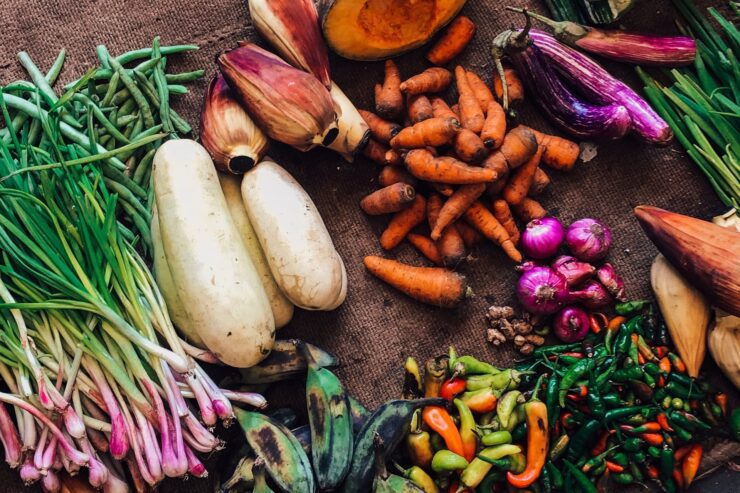
Tips to reduce food waste
Embrace, Plan, Freeze, Compost
We are all aware of what happens to the food we eat. Whether we are vegan, paleo, vegetarian, pescetarian, or omnivore; our food is ingested and broken down, giving us the energy and nutrients we need for survival. We live in a society that promotes conscientious eating. However, with the emphasis being put on the food that we eat, we forget to think about the food we do not.
In the US alone, it is estimated that nearly 40% of food is wasted per year, amounting to 80 billion pounds. To put that into perspective, we could fill 1000 Empire State Buildings with our wasted food each year. In 2018, the Environmental Protection Agency estimated that 35.3 million tons of waste went into landfills, equating to 24.1% of all municipal solid waste. In 2019, 35 million people in the US suffered from hunger. The statistics present us with a shocking reality, and a huge humanitarian dilemma. Alongside the social complications that these stats present us, there are also environmental complications. When food decomposes in landfills, it releases methane, a greenhouse gas that is at least 28 times more potent than CO2.
Food waste is a massive contributor to climate change, with the Intergovernmental Panel on Climate Change estimating that loss and waste of food contributed to 10% of global warming emissions between 2010 – 2016. With the population growing, we need to identify not how to produce more food, but how to efficiently use the food we have produced. We need to be conscious and take small steps to curb emissions and reduce the amount of wasted food.
Embrace the imperfections
Food comes in all shapes and sizes. However, throughout the years we have become attuned to an expected ideal of what these fruits and vegetables should look like. We rummage through the apples, carrots, and potatoes for the most aesthetically pleasing ones. However, fruit and vegetables have cosmetic flaws that do not affect the taste. The demand for perfect fruit and veg has taken over, leaving tons to get discarded.
We need to embrace the imperfections and pick the vegetables and fruit that do not fit our perfect cosmetic perceptions. Some supermarkets, acknowledging waste, have now started selling ‘ugly’ fruit and vegetables as a way to reduce their waste. Even Wal-Mart has gotten on board, selling their line of “I’m Perfect”, apples, and their flawed line of potatoes, “Spuglies”. New delivery services, like Imperfect Foods, working to curb food waste have popped up in recent years as well. We need to reshape our perceptual norms of fruit and vegetables, shift consumer views and make a virtue out of imperfection. That way we can maximize fruit and vegetables that are consumed, with less waste and therefore less environmental impact.
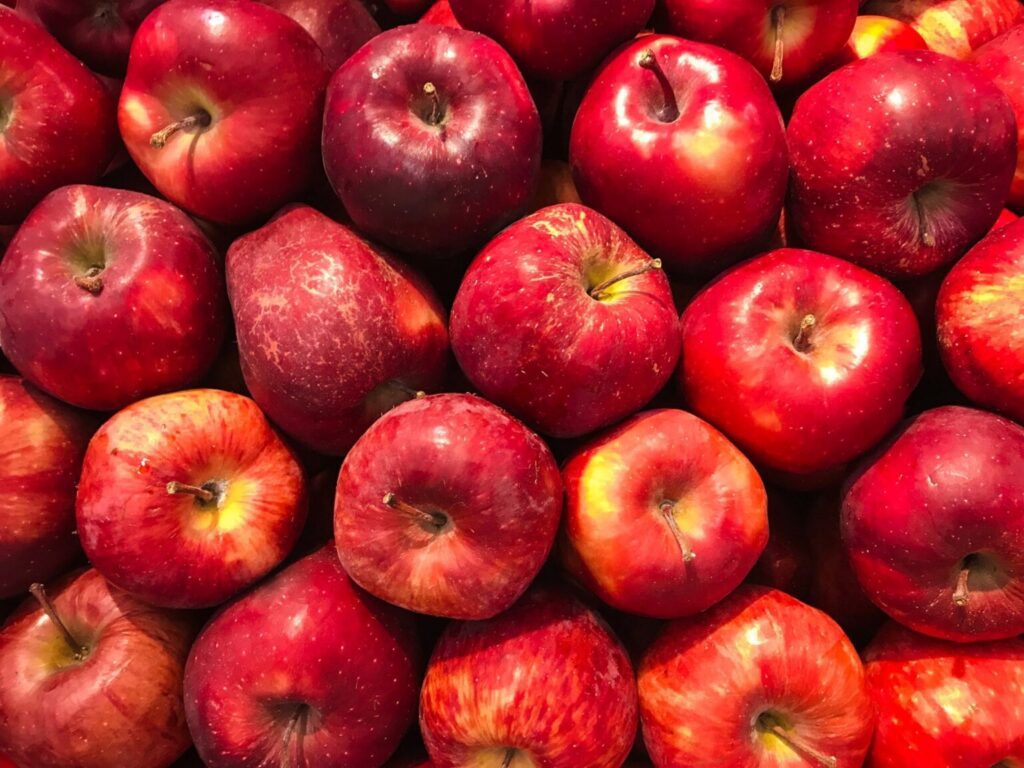
Plan ahead
By thinking about your meals for that week, you have already reduced your waste. You have thoughts and ideas about the essentials you need to buy, and so shop with a motive, with more intentional purchases. Meal planning is a simple, yet essential step towards a more eco-friendly kitchen. It can prevent you impulsively throwing unessential food and snacks into your cart, which will inevitably be wasted.
Additionally, it is a good way for you to understand what you are putting in your body, so it is not only a greener approach to your food but also healthier. You can ensure that you are consuming a healthy diet with an ample amount of protein, nutrients, and vitamins. Ultimately, planning, and thinking about your meals for the coming week, reduces waste, as well as encouraging you to have a healthier lifestyle.
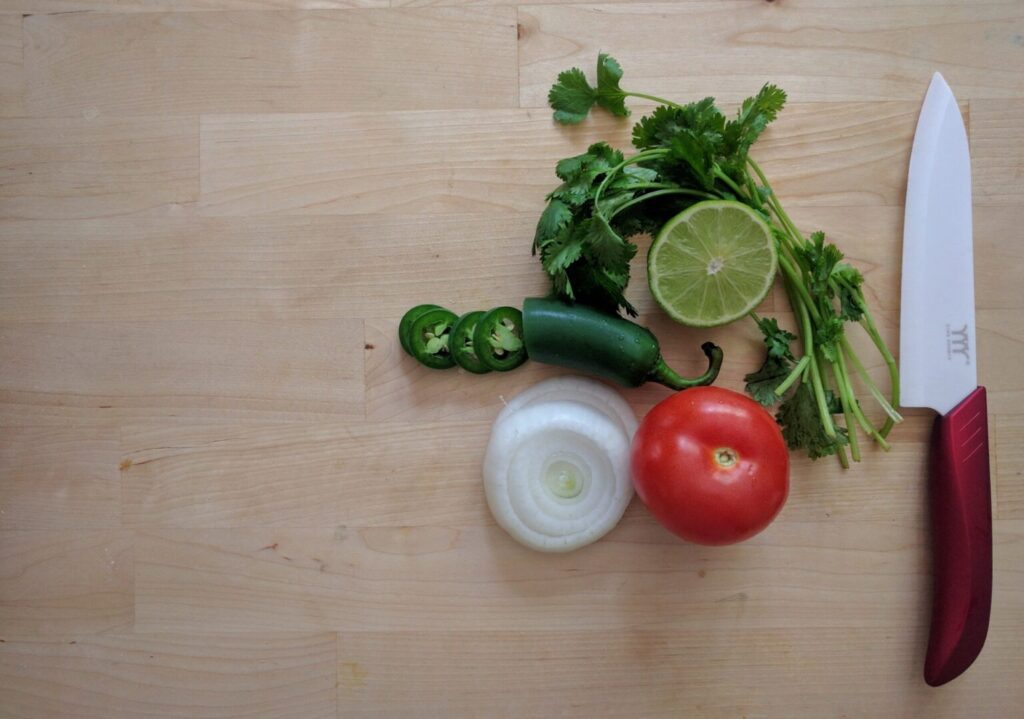
Freeze your food
By freezing food, you are essentially hitting the pause button and preventing it from going to waste. It stays fresh for longer, giving you that breathing space you need before using it up. Your food still stays fresh and is just as nutritional as it was before it was frozen, locking in vitamins and minerals. You can enjoy high-quality food, throughout the seasons, therefore reducing the intensive modes of transport needed to export seasonal food throughout the year. Additionally, if you have bulk made a meal, and you don’t have to eat it right away, you can freeze it and save it for another day without the need of putting it off, then throwing it away. Freezing your food is a simple step to reduce waste and eat seasonal vegetables yearly, in a greener, more sustainable way.
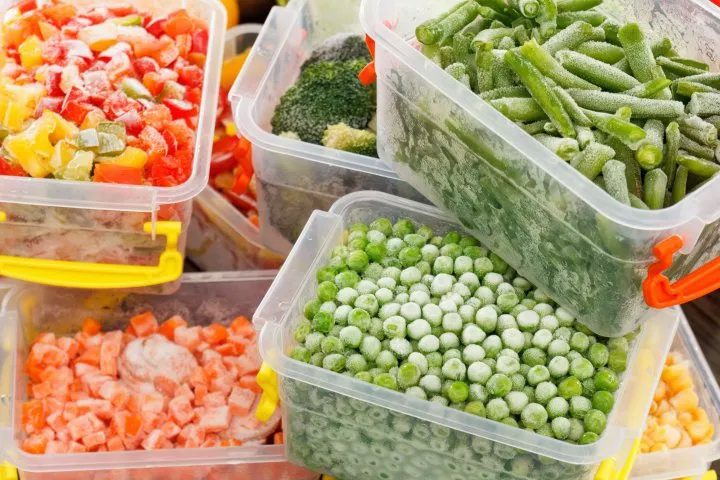
Compost
After you have planned, frozen, and embraced imperfect food, you will still produce food waste, be that the trimmings or inedible parts of food. This waste needs to go into your compost bin. When food is thrown out into a waste bin, it breaks down anaerobically, producing methane and directly contributing to climate change. By composting organic waste aerobically, a compound can be created that improves and nourishes the soil, benefitting the next generation of crops, and improving water uptake. Composting can also reduce the need for chemical fertilizers, aid reforestation and restoration of land, and provide carbon sequestration. Our food waste can be used in such a way that it is recycled back into the soil that birthed it, bringing with it nourishment and natural fertilization.
San Francisco has launched a large-scale food composting program, collecting 370,000 tons of compostables per year, which is then used by local farmers and wineries in Napa and Sonoma countries. We are experiencing global desertification of land, which leads to the need for more chemical fertilizers, less arable land, and increased flooding. By composting our organic waste we can add the nutrients back in, and promote growth on soil that is being overfarmed. It is an easy step in our fight against climate change and is one that you can start today.
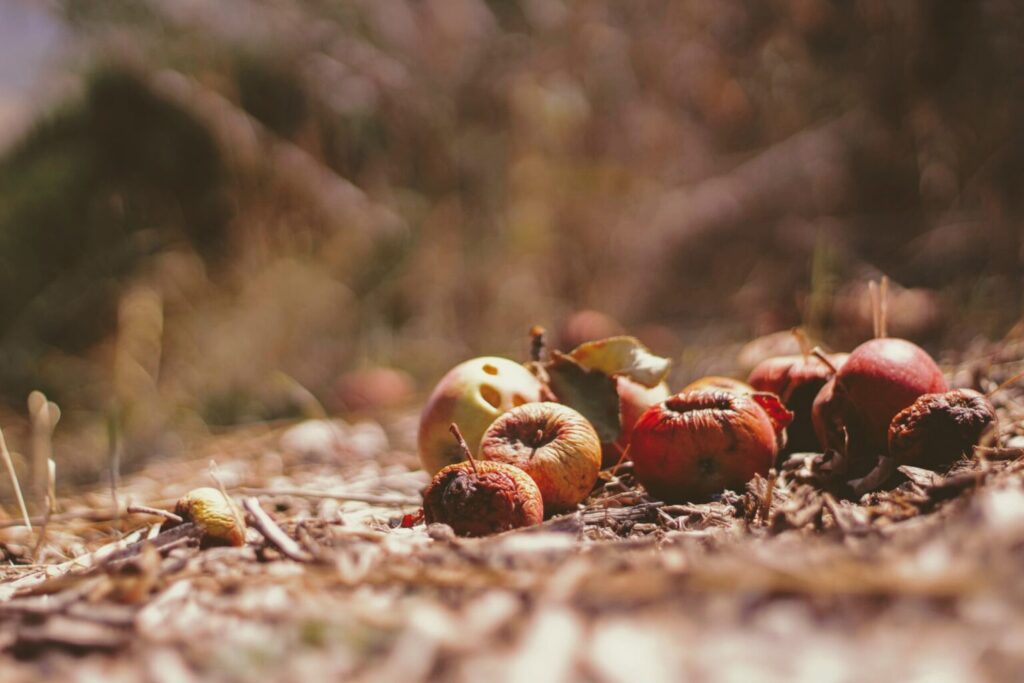
These simple steps will instantly help reduce the vast quantity of food waste having detrimental effects on our environment. Food waste is a humanitarian and environmental problem, and being more conscientious about the way we shop can prevent the 40% of food produced being discarded. By the acts of freezing, planning, embracing and composting our food, we can ensure we are playing an active role in reducing waste and greenhouse gas emissions. We all enjoy our food, and we can enjoy it even more when we know that using it to its full, whatever shape or size, season or state. Therefore, think about the food not just that you eat, but the food you don’t. The food in your fridge, in the supermarkets, left over as scraps, and go that extra-green mile, disposing of it, and consuming it in a way that reduces waste and can nourish that land that grows it.
